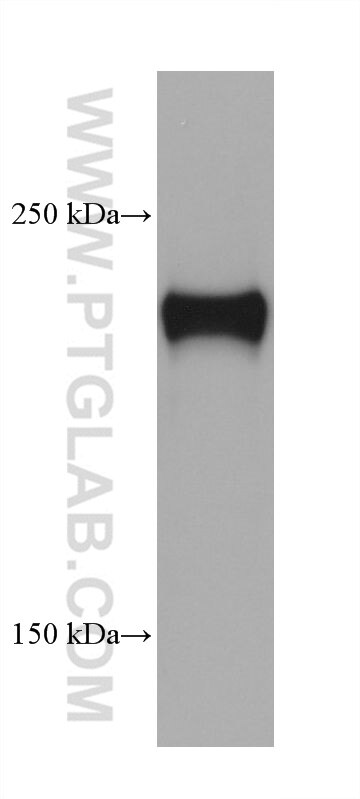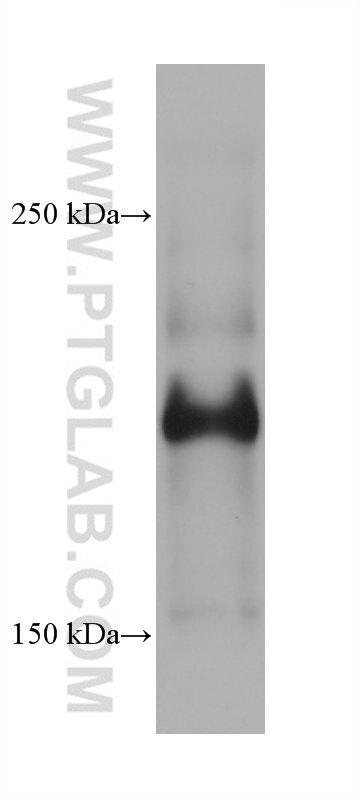Validation Data Gallery
Tested Applications
Recommended dilution
| Application | Dilution |
|---|---|
| It is recommended that this reagent should be titrated in each testing system to obtain optimal results. | |
Product Information
68635-1-PBS targets PTPRH in WB, Indirect ELISA applications and shows reactivity with human, pig samples.
| Tested Reactivity | human, pig |
| Host / Isotype | Mouse / IgG1 |
| Class | Monoclonal |
| Type | Antibody |
| Immunogen | PTPRH fusion protein Ag17351 相同性解析による交差性が予測される生物種 |
| Full Name | protein tyrosine phosphatase, receptor type, H |
| Calculated molecular weight | 1115 aa, 122 kDa |
| Observed molecular weight | 200-210 kDa |
| GenBank accession number | BC111716 |
| Gene Symbol | PTPRH |
| Gene ID (NCBI) | 5794 |
| Conjugate | Unconjugated |
| Form | Liquid |
| Purification Method | Protein G purification |
| UNIPROT ID | Q9HD43 |
| Storage Buffer | PBS only , pH 7.3 |
| Storage Conditions | Store at -80°C. |
Background Information
PTPRH, also known as SAP-1 (Stomach Cancer-Associated Protein-Tyrosine Phosphatase-1), is a member of the protein tyrosine phosphatase (PTP) family. These enzymes regulate cellular signaling by dephosphorylating tyrosine residues on proteins, counterbalancing kinase activity (PMID: 11278335). PTPRH is classified as a receptor-type PTP, characterized by an extracellular domain, a transmembrane region, and intracellular catalytic domains. In colorectal, gastric, and hepatocellular cancers, PTPRH is often upregulated and linked to poor prognosis (PMID: 12101188). Paradoxically, it may suppress tumorigenesis in other contexts by stabilizing cell adhesion. Overexpression in certain cancers suggests utility as a diagnostic or prognostic marker. The molecular weight of PTPRH is 122 kDa, it is reported that it can form a dimer with a molecular weight of 210 kDa (PMID:15850787).

